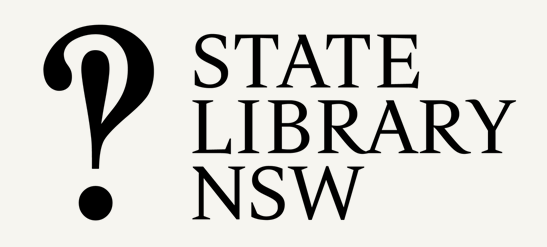Protocol 4 is about ensuring that our libraries are approachable and welcoming to Aboriginal and Torres Strait Islander peoples. Although most library spaces feel far less institutional and imposing than they once did they can still be intimidating, particularly for people who may have little or no experience using them. Attention to library design, presentation and staffing can make a big difference to people’s experience.
Having an acknowledgment at the entrance of the traditional owners of the land the library sits on, a welcome message in the local language (especially if there are equivalents translated into other languages) and displaying the Aboriginal and Torres Strait Islander flags in some form are all visual cues that a space is welcoming to Aboriginal and Torres Strait Islander peoples. Likewise, it’s reassuring for people to see Aboriginal and Torres Strait Islander staff within the space, particularly at service points like reference desks.
Once people feel welcome to enter the library space, it is vital that the staff they encounter are approachable and sensitive to the anxieties they may have. This includes being aware that our collections hold information that may be sensitive, offensive and traumatic to Aboriginal and Torres Strait Islander peoples.
For inexperienced library users, approachable and friendly staff make it easier to seek assistance using library systems without feeling intimidated or inferior. As well, focused finding aids can help users find materials of interest without having to know how to search the catalogue, and visual markers such as Aboriginal flag labels on the spines of books can be useful in smaller collections.
As with the other Protocols, engaging with Aboriginal and Torres Strait Islander communities and individuals is the very best way to ensure that your library’s resources, services and environment meet their needs, and to promote the services you offer. The most effective way to do this is to employ Aboriginal and Torres Strait Islander liaison officers.
In this section we’ll look at case studies about how public libraries are successfully using the State Library of New South Wales Indigenous Spaces in Library Places toolkit, and about how kuril dhagun, the State Library of Queensland’s Aboriginal and Torres Strait Islander community participation and meeting space, engages with communities to create exhibitions.
In the video below, Nathan Williams explains some of the things we can do to make Aboriginal and Torres Strait Islander peoples feel more culturally safe, whatever the reason they are visiting our library.
Case studies
> A different perspective on history: collaborating with a remote community
State Library of Queensland partnered with the Palm Island community and other collecting institutions to create an exhibition telling the community’s side of the island’s history.
> A toolkit for inclusive library spaces
The ‘Indigenous Spaces in Library Places’ toolkit was developed by the State Library of NSW to provide practical guidance to public libraries about making culturally safe and welcoming spaces for Aboriginal peoples and communities, and building inclusive collections and services.
> Consulting with Elders to improve collection information and management
The National Library of Australia learned many valuable lessons from working with Pitjantjatjara Elders to find out more about heritage photographs in the library’s collection.
> Galiwin’ku community library classification system
The Northern Territory Library partnered with East Arnhem Regional Council to re-imagine a new and different classification system for Galiwin’ku Community Library, reforming collection classification from a traditional Western library-orientated structure to a culturally relevant user-orientated structure and layout.
Further resources
Policies and guidelines
Position statement: Aboriginal and Torres Strait Islander library collections and services – NSLA (2021)
Aboriginal and Torres Strait Islander collections commitments – State Library of Queensland (2019)
Engaging with Traditional Owners – AIATSIS (2021)
Indigenous Spaces in Library Places: strategy and toolkit – State Library of New South Wales (2017)
Articles and presentations
Toward Inclusive Reading Rooms: Recommendations for Decolonizing Practices and Welcoming Indigenous Researchers – American Society of Archivists (2021)
The museum will not be decolonised – Sumaya Kassim (Media Diversified, 2017)
The challenges of trying to bring context to Birmingham Museum and Art Gallery.
See also: The museum will not be decolonised – video, written and narrated by Sumaya Kassim and produced by Arwa Aburawa.
Deciphering Arrernte archives: The intermingling of textual and living knowledge – Jason Gibson, Shaun Angeles, Joel Liddle (Univerity of Hawai’i Press, 2019)
Interviews explore some of the issues Arrernte peoples confront as they work through archives, including the limitations of conventional cataloguing requirements and the importance of reading archival texts in a way that sees them emplaced and tested against the knowledge of Elders, and the role of digital technologies in the future dissemination of cultural materials.
Diversity, inclusion & respect: Embedding Indigenous priorities in public library services – Kirsten Thorpe and Monica Galassi (Public Library Quarterly, 2018)
“Drawing on a case study from the State Library of New South Wales in Australia, the article outlines the focused action of developing an Indigenous Services Business Plan. The Plan promotes inclusion and diversity across the organization to progress Indigenous priorities as core business of the Library.”
Library Services to Indigenous Populations: Case Studies – Loriene Roy (Anishinabe) and Antonia Frydman (IFLA, 2017)
“This online book was developed with the following goals: To provide librarians around the world with a reference guide that they can use to guide their services for and with indigenous peoples. To establish strong networks of indigenous librarians so that international efforts are inclusive and reflective of good policy.” Case studies from Australian libraries are included at pp77-93.
Self-determination and archival autonomy: advocating activism – E. Daniels, J. Evans, G. McCarthy, S. McKemmish (Archival Science, 2015)
“This paper explores the role of archival activism in supporting social movements linked to human rights and social justice agendas. Taking a records continuum perspective, it presents an Australian case study relating to the Stolen Generations, Former Child Migrants, Forgotten Australians and Forced Adoption communities to illustrate imperatives for advocacy and activism in support of the ‘archival autonomy’ of communities.”
Audio and video
Embedding Indigenous voices at the State Library of New South Wales: Transforming practice through community engagement – Monica Galassi and Kirsten Thorpe (audio, AIATSIS, 2017)
“The State Library of New South Wales holds vast collections of material relating to the experiences of Indigenous people in Australia. In 2014, the library made a renewed focussed effort to review and increase the library services dedicated to the Indigenous population through the creation of the Indigenous Services Branch.”
Fred Leftwich: Researching Family History – AIATSIS (video, 2016)
“When you discover your history, it gives you your identity back.”
Gaining access: warming the ground – Indigenous Leadership, Charles Darwin University (video, 2016)
Valda Shannon talks about what people need to do to prepare for researching in Aboriginal communities in Australia.
Cultural protocols when researching with Australian Aboriginal communities – Indigenous Leadership, Charles Darwin University (video, 2016)
Engaging community language researchers with Indigenous languages collections – Desmond Crump (audio, AIATSIS, 2017)
Presentation by Desmond Crump about how the State Library of Queensland has opened up their collections for community access as well as building capacity in communities to not only research these materials but also create new knowledge to enhance community language revival.
Case studies
Improving library services for Aboriginal and Torres Strait Islander peoples – ALIA (2019)
“This document has examples of initiatives that are already underway, while highlighting opportunities for further improvement… The report provides ideas for libraries that may not be so far advanced in their approach, and it prompts discussion about ways in which Australian libraries can work together to make further progress.”









